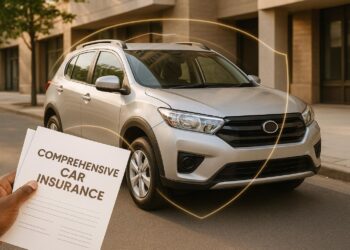Learn how to avoid common car scams in Uganda with this detailed guide. Discover smart buying tips, red flags to watch out for, and trusted platforms like auto24.ug to shop safely.
Buying a car in Uganda—whether it’s your first vehicle or an upgrade—can be exciting. But the process also comes with risks, especially when dealing with unverified sellers, fake documents, or shady dealers. Car buying scams are unfortunately common, and unsuspecting buyers often lose hard-earned money due to simple mistakes that could have been avoided.
This article highlights the most common scams in Uganda’s car market and gives you actionable safety tips to ensure a safe and smooth transaction. Whether you’re browsing through online listings or visiting local showrooms, this guide will help you steer clear of fraud and make informed choices.
1. Do Your Research First
Before anything else, educate yourself. Know the car model you want, average market prices, fuel economy, common mechanical issues, and availability of spare parts in Uganda.
Where to start:
- Read reviews on automag.ug, which offers up-to-date automotive news and insights for Ugandan drivers.
- Browse reliable listings on auto24.ug to get a feel of real market prices across different vehicle models.
- Use carkibanda.com to compare prices, review seller ratings, and check documentation support.
Pro tip: If a deal seems too good to be true, it probably is.
2. Always Deal With Verified Sellers
Whether buying online or in person, always confirm that the seller is legitimate. Avoid vague profiles or listings with little information.
How to verify:
- Ask for the seller’s full name, phone number, and national ID.
- Meet in person at a public and secure location.
- Avoid sellers who rush you or insist on communicating only via phone without physical meetings.
Trustworthy platforms like auto24.ug and carkibanda.com often verify their sellers and provide detailed listings with real photos and car histories.
3. Don’t Make Payments Before Seeing the Car
One of the most common scams in Uganda involves buyers sending money to secure a car before ever seeing it. The scammer then disappears.
How to avoid this:
- Never send money via mobile money, bank transfer, or cash until you’ve seen the car and verified ownership.
- Be wary of sellers claiming to be “out of town” or needing “a deposit to reserve” the vehicle.
- Always sign a sales agreement in the presence of a witness if a down payment is necessary.
4. Physically Inspect the Car
Don’t rely on photos alone. Visit the location where the car is stored and thoroughly inspect it—or better yet, bring a trusted mechanic with you.
What to check:
- Engine condition (listen for knocking sounds or irregular idling)
- Tyres, suspension, and brake response
- Odometer reading and signs of tampering
- Interior and electronics
- Chassis or body damage (especially signs of an accident)
If you’re unsure what to look for, use this car inspection checklist from automag.ug to guide your process.
5. Confirm the Vehicle’s Documentation
Car fraud in Uganda often involves forged logbooks, tampered number plates, or cars with pending URA taxes. Avoid these traps by verifying all paperwork.
Documents to ask for:
- Logbook (must match the registration number)
- Seller’s ID (name on logbook should match ID)
- URA tax status printout
- Import documents (if car was imported recently)
- Sales agreement draft
Use the URA portal to check vehicle registration details and tax compliance. The car’s registration number and chassis number should match across all documents.
6. Beware of Stolen Vehicles
Some vehicles sold cheaply in Kampala or border areas may have been stolen from neighboring countries. If you buy a stolen car—whether knowingly or not—it can be confiscated by authorities.
Red flags:
- No logbook or only photocopies
- Chassis number looks scratched or altered
- Very low price for a high-end model
- Seller hesitant to provide location or identity
Always conduct a police clearance check if you’re buying from an individual, especially for high-value cars.
7. Use Trusted Car Platforms
Avoid classified sites with minimal regulation or social media pages full of anonymous sellers. Instead, use platforms with built-in safety measures and customer support.
Top recommended sites:
- ✅ auto24.ug – Reliable second-hand car listings with verified sellers
- ✅ carkibanda.com – Great for comparing cars, reading auto reviews, and learning more about ownership procedures
- ✅ automag.ug – News, road tips, buying guides, and scam alerts tailored for Ugandan drivers
8. Take a Test Drive
A test drive reveals more than photos ever could. Use this chance to:
- Check how the car accelerates and brakes
- Listen for strange sounds from the engine or undercarriage
- Test dashboard lights and steering response
- Notice if the car pulls to one side or handles poorly
Never buy a car you haven’t driven—no matter how great it looks.
9. Involve a Lawyer or Experienced Buyer
If you’re unsure about contracts or paperwork, involve a lawyer or a friend who has experience buying cars in Uganda. They can:
- Help draft a clear sales agreement
- Ensure you don’t miss any legal steps in the transfer
- Identify red flags during negotiations
10. Transfer Ownership Immediately
Once you’re sure about the purchase, make sure ownership is transferred to your name through the URA online portal. Don’t postpone this process.
Why it matters:
- If the car is used in a crime while still under someone else’s name, you’ll be held responsible
- You may have trouble renewing insurance or road license
- In the event of theft, recovery becomes difficult
FAQs: Avoiding Scams When Buying a Car in Uganda
1. What’s the safest way to buy a used car in Uganda?
Use verified platforms like auto24.ug or carkibanda.com, inspect the car in person, verify documents via URA, and never pay before seeing the vehicle.
2. Can I check a vehicle’s status online in Uganda?
Yes. Use the URA’s online portal to confirm registration status, ownership, and tax compliance using the car’s registration number.
3. How do I know if a logbook is real?
Ensure the name matches the seller’s ID, inspect the logbook for tampering, and cross-check the details on the URA website. Also check the issue date and hologram sticker for authenticity.
4. Are social media car sales safe in Uganda?
Not always. While some genuine sellers use Facebook or WhatsApp, many scams happen on unregulated platforms. Always insist on meeting the seller in person and verifying documents.
5. What should I do if I suspect a car is stolen?
Don’t proceed with the sale. Report your concerns to the police or local authorities. Avoid engaging further with the seller and don’t make any payments
6. How can I protect myself during the transaction?
Meet in public, use witnesses, sign a detailed agreement, and never pay without verifying both the vehicle and the paperwork. Bring a mechanic and legal support if necessary.
Conclusion
Buying a car in Uganda doesn’t have to be risky—but you must stay alert and informed. From fake logbooks to deposit scams and stolen vehicles, fraudsters use many tactics to trick unsuspecting buyers. By taking the steps outlined in this guide—researching, inspecting, verifying, and using trusted platforms like auto24.ug and carkibanda.com—you can buy a car with confidence and peace of mind.
Stay safe, and happy driving!




